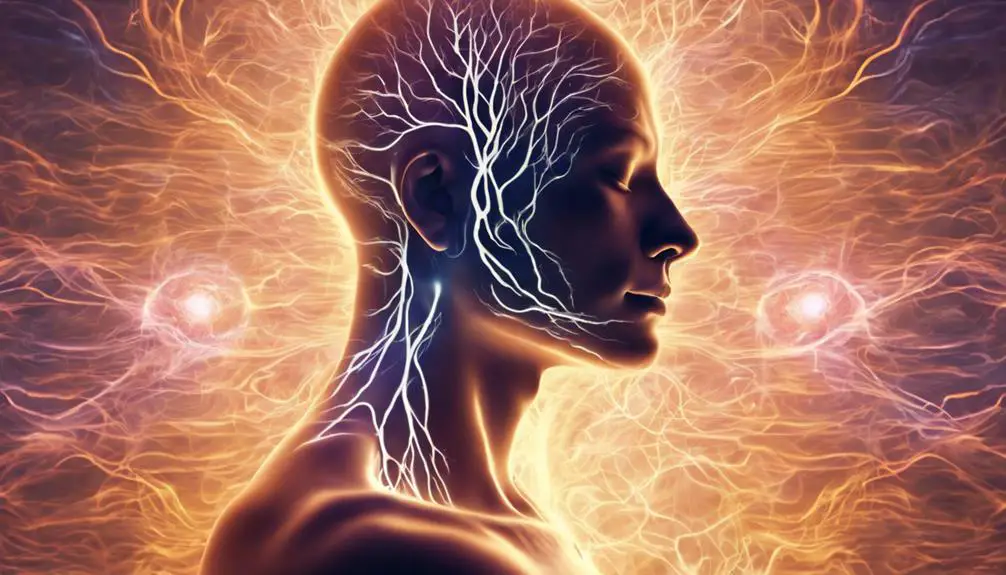Therapeutic Hypnosis Benefits
3 Ways Hypnosis Can Relieve Pain & Promote Healing
September 18, 2018 - Therapeutic Hypnosis Benefits
Hypnosis can help relieve pain and enhance healing through deep relaxation, which reduces pain intensity and improves tolerance. It aids in visualization techniques that access the subconscious mind, creating an environment for healing and reprogramming beliefs. Furthermore, hypnosis explores the mind-body connection, guiding a focus on mental wellness and physical health. By enhancing receptivity to positive suggestions, it can effectively manage chronic pain, anxiety, and boost the immune system. The power of hypnosis to promote healing and pain relief is vast and can offer a comprehensive approach to well-being.
Pain Relief Through Hypnosis

Utilizing hypnosis as a method for pain relief has shown promising results in various clinical settings. Pain management through hypnosis involves guiding individuals into a deeply relaxed state where they are more open to suggestion and can focus their minds away from the sensation of pain. By harnessing the power of the mind, hypnosis can help individuals cope with and reduce their perception of pain, offering a non-invasive alternative to traditional pain management techniques.
Studies have indicated that hypnosis can effectively reduce pain intensity, improve pain tolerance, and enhance overall well-being. The healing potential of hypnosis lies in its ability to address both the physical and psychological aspects of pain. Through relaxation techniques, visualization, and positive affirmations, individuals can experience relief from chronic pain conditions, acute injuries, and even post-operative discomfort.
Accelerated Healing With Hypnotherapy
Hypnotherapy has demonstrated the potential to expedite the healing process for individuals dealing with a variety of health conditions. Through techniques such as healing visualization, hypnotherapy aims to tap into the power of the subconscious mind to promote accelerated healing. By guiding individuals into a state of deep relaxation and heightened focus, hypnotherapy can help create a mental environment conducive to healing on a physical level.
Healing visualization techniques used in hypnotherapy involve the individual imagining themselves in a state of perfect health, visualizing the body's natural ability to heal and regenerate. This process can help reprogram the subconscious mind to support the body's healing mechanisms, potentially leading to faster recovery times and improved overall well-being.
Furthermore, the concept of subconscious healing in hypnotherapy emphasizes the idea that our subconscious beliefs and thoughts can significantly impact our physical health. By addressing and modifying these subconscious patterns through hypnosis, individuals may experience enhanced healing responses and a more efficient recovery process.
Mind-Body Connection in Hypnosis

The profound interconnectedness between the mind and body is a central tenet in the practice of hypnosis. Through hypnotherapy, individuals can tap into their subconscious healing abilities, fostering a deep connection between mental wellness and physical health.
Hypnosis works by guiding individuals into a state of heightened focus and suggestibility, allowing them to access their inner resources for healing and well-being.
When the mind is in a relaxed state during hypnosis, it becomes more receptive to positive suggestions and imagery, which can promote mental wellness and physical healing. By harnessing the power of the mind-body connection, hypnosis can help individuals alleviate pain, reduce stress, and enhance overall health.
Research suggests that hypnosis can positively impact various aspects of health, including chronic pain management, anxiety reduction, and even immune system function. By acknowledging and leveraging the mind-body connection in hypnotherapy, individuals can unlock their innate potential for healing and well-being.
Frequently Asked Questions
Can Hypnosis Be Used for Chronic Pain Management?
Hypnosis is a recognized alternative therapy for chronic pain management. It can help individuals with chronic conditions by promoting mindfulness practices and reducing pain perception. As a complementary approach, hypnosis offers potential benefits for long-term pain relief.
How Long Does It Take to See Results With Hypnotherapy?
Hypnosis effectiveness varies among individuals, making it challenging to predict a specific timeframe for results. Patient expectations, progress tracking, and the complexity of the issue being addressed all influence the speed of improvement in hypnotherapy outcomes.
Is Hypnosis Safe for All Ages, Including Children?
Child hypnosis safety is a crucial consideration as parents seek alternative therapies. Research supports the effectiveness of hypnosis in kids for various issues. However, it's essential to ensure that practitioners have specialized training in pediatric hypnotherapy.
Can Hypnosis Help With Emotional Pain and Trauma?
Hypnosis, a powerful tool in mental health, can effectively address emotional pain and trauma through hypnotherapy. By accessing the subconscious mind, it helps individuals process and heal from traumatic experiences, offering significant relief and promoting emotional well-being.
Are There Any Potential Side Effects of Using Hypnosis for Pain Relief?
While hypnosis can offer benefits for pain relief, it's essential to consider potential risks. Efficacy studies show promise, yet challenges include individual variability in response and rare instances of post-hypnotic suggestion. Understanding these aspects is crucial for informed decision-making.
Conclusion
In conclusion, hypnosis has shown to be a powerful tool for relieving pain and promoting healing through its ability to tap into the mind-body connection.
By using hypnotherapy techniques, individuals can experience accelerated healing and improved overall well-being.
The potential benefits of hypnosis in pain management and healing warrant further exploration and consideration in the field of healthcare.
